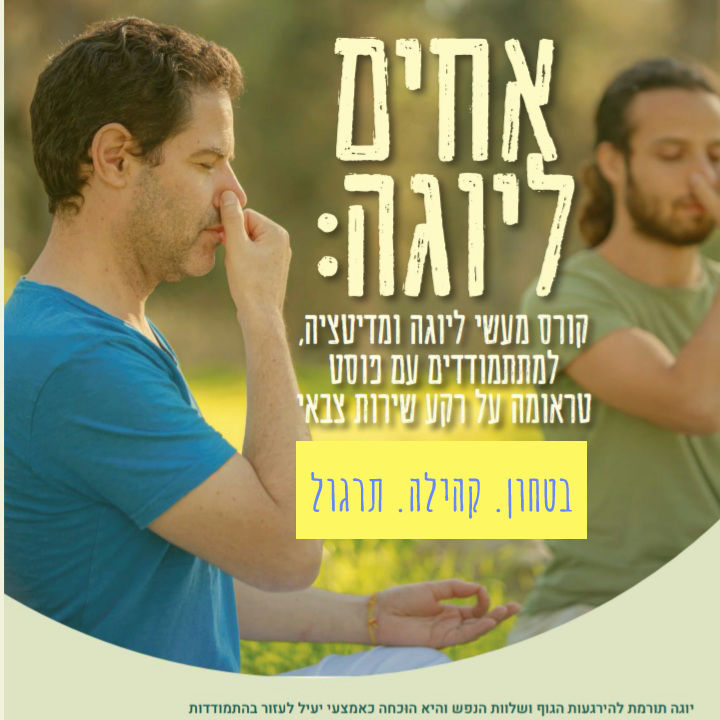Practical tools for dealing with symptoms of post-traumatic stress disorder
- Brothers in Yoga Brothers in Yoga

- Jun 9, 2023
- 2 min read
We all experience trauma in a different way and we all deal with different and varied symptoms such as anxiety, depression, flashbacks, nightmares and hypervigilance.While professional treatment is very important for managing post-traumatic stress disorder and adjusting to the rehabilitation path, this is a long-term treatment that does not give us an answer in the critical moments to reduce stress and anxiety.
There are lots of practical everyday tools we all already know that can be used to help reduce symptoms.I can testify for myself that I have been hearing all of them for years from different therapists in the field, but until we decide to take it upon ourselves to adopt these tools, we will not be able to help ourselves. So let's go over some of the best everyday practical tools for managing trauma symptoms:

3. physical activity - Regular physical activity has been shown to reduce symptoms of depression and anxiety, improve the quality of sleep and help reduce hyperarousal.Physical activity can include activities such as walking, running, swimming, yoga or any movement that activates the body and is good for your heart.
4. Journaling - Journaling can be a helpful tool to process our thoughts and feelings.Writing down traumatic experiences and feelings can help reduce the intensity of these experiences and promote healing.You can write to yourself freely, take out an unprocessed mess or, on the contrary, arrange your thoughts on paper.For me, writing is a huge release in all phases of my life and certainly since the trauma, I write texts, thoughts, fears, doubts and enclose everything inside the page and far from my head.

5. Social Support - Social support from family, friends or support groups can Being an amazing tool for improving the condition and reducing symptoms.Talking to someone who understands what you are going through can help reduce feelings of isolation and promote feelings of connection and belonging. You can contact a family member or a friend, a yoga brother (who is both a friend and a family member) or any person you are comfortable talking to, you can always send a message or call but there is nothing like sitting face to face and feeling the feedback of the person in front of you.
Managing life and the symptoms of trauma within it often challenges us and our daily lives, there are lots of practical everyday tools that can be used to help manage and reduce symptoms.We have gone over here only a few examples of practical tools that can be used.These tools can be integrated into the daily routine and used whenever symptoms appear and even more importantly for prevention. It is important to remember that everyone's experience is different, and what works for one person may not work for another.
The Yoga Brothers program combines a space for security, a supportive community, breathing exercises, mindfulness and physical activity with the aim of providing practical tools for its participants to stand on their feet and improve their quality of life.
Writing a diary is not part of the program, but it is absolutely recommended to document the journey and process the experiences.





Comments